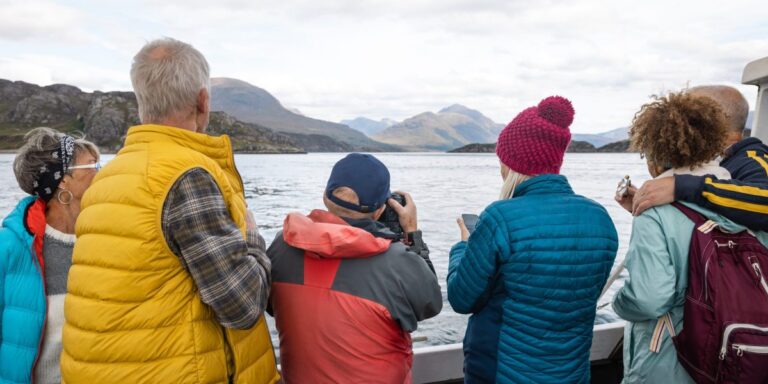A new agreement between Alaska’s state capital and major cruise lines aims to limit the number of cruise ship passengers arriving in Juneau per day starting in 2026, but a prominent critic of the cruise industry said Tuesday that the planned restrictions don’t go far enough.
The agreement reached last weekend aims to limit the number of passengers on cruise ships to 16,000 per day from Sunday to Friday and 12,000 on Saturdays, but officials have said that won’t necessarily be the case every day.
Cruise ship traffic has risen sharply after two stagnant years due to the pandemic, hitting a record high of more than 1.6 million passengers in Juneau last year, creating tensions between businesses that rely on tourism and residents who are tired of increased traffic, crowded trails and the noise of helicopters ferrying tourists to the glaciers.
The cruise season is also getting longer, with the first cruise ship of the year arriving in Juneau in early April and the last scheduled to arrive in late October, and at past peaks passenger numbers reaching about two-thirds of Juneau’s population of about 32,000.
Under a separate agreement signed last year, a daily limit of five large ships was set for port entry starting this season.
Juneau Tourism Industry Director Alexandra Pierce said Tuesday the goal of the current agreement is to keep cruise ship passenger numbers roughly constant at the 1.6 million mark.
“The aim of the agreement is to give everyone time to build infrastructure that feels more sustainable, not just to see if it’s sustainable,” she said.
Pierce expects several projects to be completed over the next five years that will “dwarf the current numbers,” including plans for a gondola at the city’s ski resort, renovations to the downtown waterfront boardwalk and an expansion of visitor capacity at the popular Mendenhall Glacier Recreation Area.
The agreement, signed by the mayor and executives from major cruise lines, also calls for holding annual meetings to “review lessons learned, explore and optimize operations for the upcoming season, and align on regional and industry standards, goals and opportunities.”
Pierce said city leaders are “trying to balance the needs of our residents, the needs of our economy and the needs of future opportunities that will keep people in our community.”
Carla Hart, a longtime critic of the tourism industry, is skeptical of the new agreement, saying it doesn’t adequately address the concerns of many residents that current tourism levels are unsustainable.
“I feel like we’re just being guided again. The spread will continue, more time will pass” and the impacts will continue, she said.
Hart is helping push a local ballot measure that would establish “Free Shipboard Saturdays,” meaning cruise ships with more than 250 passengers cannot dock in Juneau on Saturdays and the Fourth of July. The measure is currently going through a signature review process. If approved, it could be placed on the October ballot.
Rene Limoges-Reeve, vice president of government and community relations for the Alaska chapter of Cruise Lines International, an industry group, said such efforts “stifle opportunities for cooperation and discussion, and I think there is a lot of room for improvement.”
He said the Juneau agreement is the cruise industry’s first in Alaska and underscores the cruise lines’ commitment to “be good partners in the communities that they visit.” Juneau and other communities in southeast Alaska are popular stops for cruises departing from Seattle and Vancouver. The much smaller community of Sitka is also grappling with a debate over tourism numbers.
Reeve and Pierce also appeared at a Greater Juneau Chamber of Commerce news conference Tuesday to discuss the agreement.

